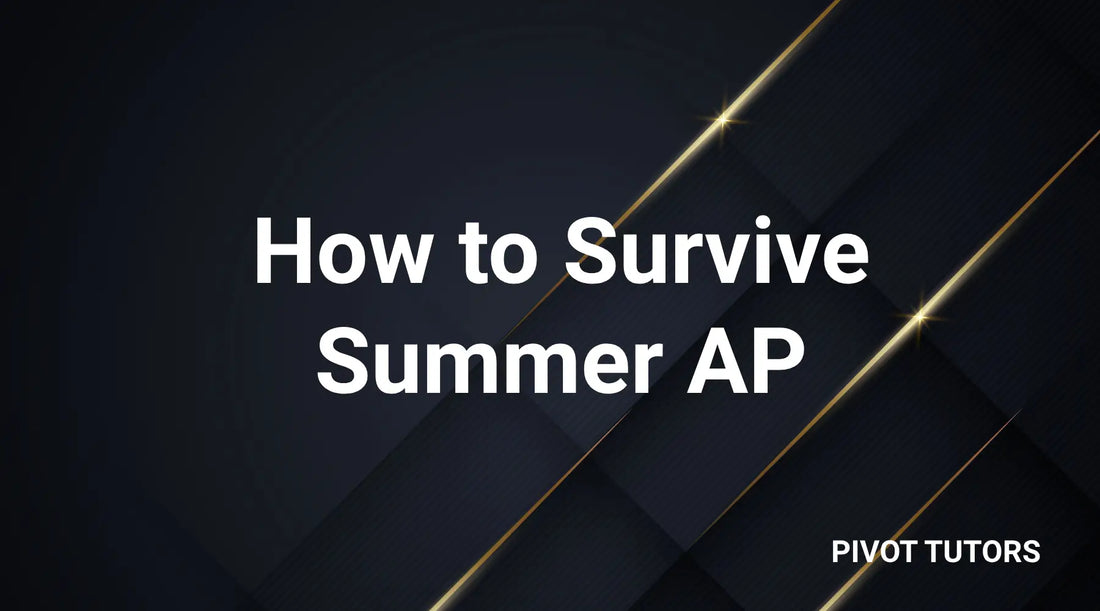Summer’s almost here, which means school is over – right? Sometimes, that is not true!
If you are one of the ambitious students who is using his or her summer to get academically ahead, here are some helpful reminders for how to succeed in a summer advanced placement (AP) course.
Take Notes
Most summer APs are online courses, which entails an extra large amount of reading. To help your brain process that information, take notes as you go through the units.
These notes can be typed or written, whichever you prefer. But they should be in a separate document or journal than the AP program itself – it will be easier to access for future study that way.
If you have not yet developed a successful style of note taking, do not fear! Pivot Tutors are excellent sources of finding a note taking style that matches your learning type.
Make a Schedule
Over the regular school year, classes are at a set time in a set place. There is a reason for this, as our cognitive function (clear thinking) is heightened through having a set routine.
Decide the place you will use for the summer AP course. Choose a location in your room or house that is not used for sleeping or playing to help make a distinction between those activities.
Decide on a specific time as well. Whether it’s an hour a day or three hours a day, setting time aside will help your brain engage with the material more effectively. It will also ensure you make continual progress towards completion of the course!
If you thrive on details, make a syllabus for yourself with what chapters or units you want to finish when. That way you are not only establishing a routine, but also ensuring you move forward throughout the summer.
Reward Yourself
Psychology has proven repeatedly that humans are motivated by rewards. So, give yourself a reward for actually following your syllabus and/or schedule.
Maybe that’s an hour of guilt-free Netflix streaming. Maybe it’s a run in a local park. Maybe it’s leveling up in your video game. Just have a parameter for your reward, so it doesn’t take more time than the class itself!
If you could use some extra motivation to slog through the less interesting topics of your course, read Pivot’s Motivation: 10 Thoughts to End Study Slumps.
Avoid Distractions
You likely have already realized this, but it bears repeating – clear your space of distractions! Leave your phone in another room, close or minimize your open browsers, and turn on the “Do Not Disturb” option if your computer has one.
Multi-tasking is often overrated: humans can accomplish more when they focus on one task at a time, especially when it comes to academic material.
Try this exercise to prove that fact to yourself: count 1-10, then do your ABCs. How much time did that take? Hopefully, it was simple and easy.
Now, count 1 to 26 and say your ABCs again, switching back and forth between them. 1, A, 2, B, etc.
How much time did that take? The process is usually longer and more confusing, even when the information itself is simple!
You can also prove this concept by writing the information and using a stopwatch, then comparing the results. Our brains are most effective when they focus on ONE task at a time!

